.jpg?width=300&name=sff2023_cmpd_header_NEW%20(1).jpg)
The Capital Meets
Policy Dialogue TM


.jpg?width=300&name=CMPD_Elevandi_IFF2023%20(1).jpg)
The Capital Meets Policy Dialogue is the premier annual summit between senior policymakers and prominent investors. It brings together the most influential voices on both sides to debate solutions to the most pressing issues facing capital investment, value creation and policymaking.
Woven intentionally close to a technology theme with high potential for growth and value creation, the Dialogue aligns two critical stakeholders of economic progress towards an informed and enabling outcome.
Distinguished Speakers
-
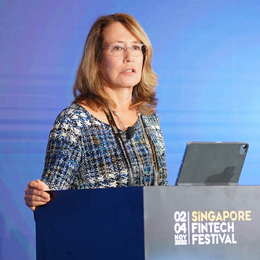
Sheila Bair
Former Chair, FDIC, Senior Fellow, Center for Financial Stability & Senior Advisor and Founding Chair, Systemic Risk Council
-
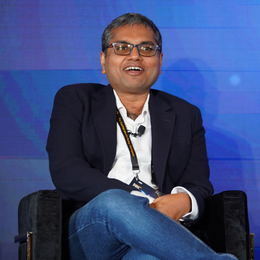
Pradyumna Agrawal
Managing Director, Investment (Blockchain), Temasek International Pte Ltd
-
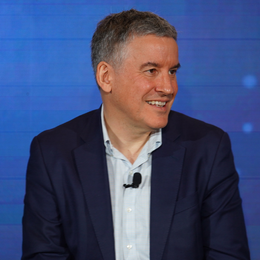
Jonathan Larsen
Chief Innovation Officer of Ping An Group, Chairman & CEO of Ping An Global Voyager Fund,
-
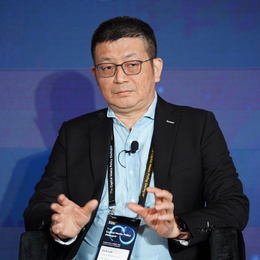
Jack Lee
Founding Managing Partner, HCM Capital
-
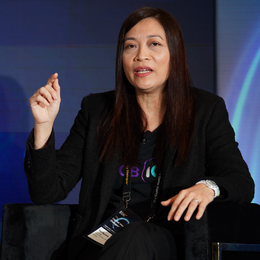
Tai Panich
CEO & CIO, SCB 10X
-
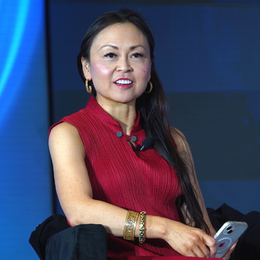
Sarah Hammer
Professor and Managing Director, The Wharton School and the University of Pennsylvania Law School
-
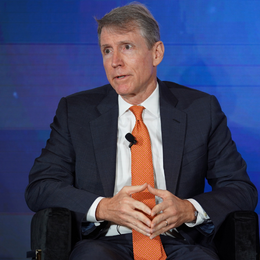
Timothy Adams
President & CEO, Institute of International Finance (IIF)
-
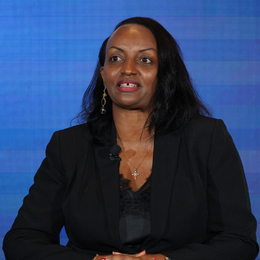
Soraya Hakuziyaremye
Deputy Governor, National Bank of Rwanda
-
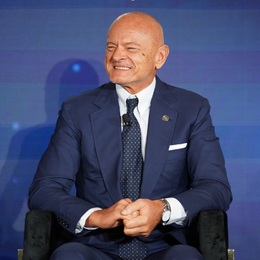
Mihály Patai
Deputy Governor, The Central Bank of Hungary
-
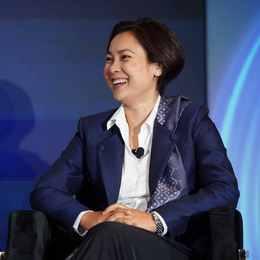
Chea Serey
Assistant Governor & Director General of Central Banking, National Bank of Cambodia
-
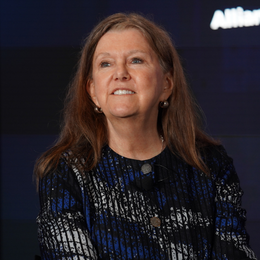
Jo Ann Barefoot
Co-founder & CEO, Alliance for Innovative Regulation
-
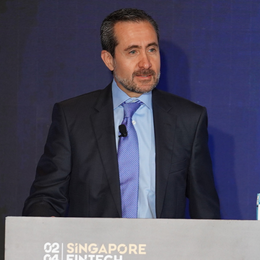
Jorge Familiar
Vice President and Treasurer, World Bank and Pension Finance Administrator, World Bank Group
-
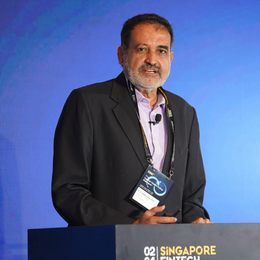
T.V. Mohandas Pai
Chairman, Aarin Capital & 3one4 Capital
2022 Distinguished Speakers













2022 Agenda
Investments in FinTech have raised U$1Tn since 2010 in over 35,000 deals. Investor capital hence has been a significant source of innovation, customer experience improvements, financial inclusion, cost reduction, and value creation. Plus, timely launches of regulatory sandboxes have played a consequential role in fuelling innovation.
Now, with boundaries between innovators, social networks, digital platforms, and finance blurring, these introduce vulnerabilities and financial stability challenges, leading to regulatory considerations and scrutiny.
Hence, an open and continuous dialogue between capital providers and policy makers is additionally needed to better align market outcomes with policy objectives.
How can that then be done better? How does an investor and business operator approach this? Importantly, what is the policymaker’s perspective?
In 2021, more than 20% of venture dollars went into FinTech start-ups globally. This year, market conditions are dramatically different in every sector, including FinTech – public and private valuations are down. In addition, there is regulatory scrutiny on fast growing FinTech sectors – whether in Web 3 or BNPL – which has impacted investment outcomes. Consequently, capital providers are deliberating each investment with more caution.
Are there lessons, good and otherwise, that investors in both private and public markets have now learned?
If harnessed better, can these lessons help minimise policy risk to capital, while continuing to fuel innovation, and ultimately driving more sustainable value creation?
FinTech innovation and adoption is moving at a dizzying pace.
Consequently, regulatory considerations range from minimising risky retail behaviour to financial market stability, to market abuse and money laundering.
How can market outcomes be better aligned with policy objectives?
How can policymakers better participate in driving innovation such that investors are able to deploy risk capital in a relatively more informed manner?
What role can a more active dialogue between investors and policymakers play?
And if so, how could it be modelled?
Audience
.png?width=2000&height=2000&name=CMPD_Chart%20Graphics%20(Sector).png)
.png?width=1828&height=2000&name=CMPD_Chart%20Graphics%20(Type%20of%20Organisation).png)
.png?width=2000&height=2000&name=CMPD_Chart%20Graphics%20(Seniority).png)
.png?width=1661&height=2000&name=CMPD_Chart%20Graphics%20(Type%20of%20Investor).png)
Exceptional Insights
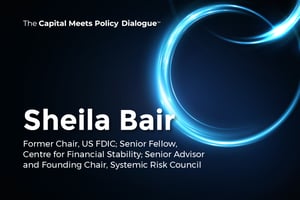
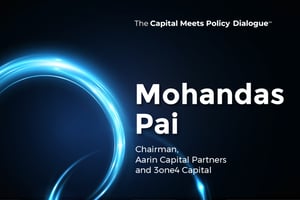
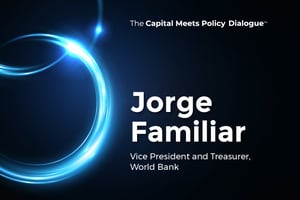
Balancing innovation and regulation
Read MorePrevious Distinguished Speakers
-
Capital Meets Policy Dialogue, Asia | 2023
-
.png?width=400&height=400&name=Aki%20Ranin%20(1).png)
Aki Ranin
Serial Entrepreneur, Investor, Head of AI, Earthshots Collective
-

Alessandra Perrazzelli
Deputy Governor, Bank of Italy
-

Beerud Sheth
Founder & Chief Executive Officer, Gupshup Technologies
-

Carine Smith Ihenacho
Chief Governance Officer, Norges Bank Investment Management
-
.png?width=400&height=400&name=Danielle%20Jiang%20(1).png)
Danielle Jiang
Deputy Director, Monetary Authority of Singapore
-

David Koh
Managing Director, Co-Head of Transaction Banking Asia, SMBC
-

David Tran
Strategy & Sustainability Senior Manager, PwC Strategy&
-

Professor Eswar Prasad
Professor, Cornell University
-

Dr Jin Guang Yu
Senior Manager, Building and Construction Authority
-

Jung Seok Kang
Chief Executive Officer, AIZEN Global
-
.png?width=400&height=400&name=Kelvin%20Tan%20(1).png)
Kelvin Tan
Head of Sustainable Finance and Investments, ASEAN, HSBC
-

Ken Guo
Founder & Chief Executive Officer, Reluvate Technologies
-

Leo Lin
Founder, Arkreen Network
-

Mukaya (Tai) Panich
CIO & CEO, SCB 10X
-

Robin Li
Vice President, Smart Sustainable City, Univers Pte. Ltd.
-
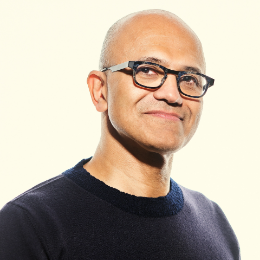
Satya Nadella
Chairman & Chief Executive Officer, Microsoft
-

Sheel Mohnot
Managing Partner, Better Tomorrow Ventures
-
.png?width=400&height=400&name=Sheldon%20Mills%20(1).png)
Sheldon Mills
Executive Director, Financial Conduct Authority (FCA)
-

Shweta Rajpal Kohli
Chief Public Policy Officer, Peak XV Partners
-

Tan Kiat How
Senior Minister of State, Ministry of National Development & Ministry of Communications and Information
-
-
Capital Meets Policy Dialogue, Europe | 2023
-

Adrienne A. Harris
Superintendent, New York Department of Financial Services
-

Axel Voss
Member of the European Parliament
-

Douglas Elliott
Partner, Co-head of Oliver Wyman Forum Future of Money Initiative, Oliver Wyman
-

Karmela Holtgreve
Director General Strategy and Innovation, Deutsche Bundesbank
-

Melissa Guzy
Co-founder & Managing Partner, Arbor Ventures
-
.jpg?width=668&height=668&name=Sigal%20Headshot%20(1).jpg)
Sigal Mandelker
Ribbit Capital
-
-
Capital Meets Policy Dialogue, Africa | 2023
-

Anna Ekeledo
Executive Director, AfriLabs
-

Arjuna Costa
Managing Partner, Flourish Ventures
-

Béata Habyarimana
Group Chief Executive Officer, BK Group Plc
-
.jpg?width=435&height=435&name=Esselina%20Macome%20(1).jpg)
Professor Esselina Macome
Chief Executive Officer, Financial Sector Deepening Moçambique (FSDMoç)
-

Irene Arias Hofman
Chief Executive Officer, IDB Lab
-

Iyinoluwa Aboyeji
Founding Partner & Chief Executive Officer, Funds for Africa's Future (Future Africa)
-
.jpg?width=1994&height=1994&name=Governor_John_Rwangombwa%20(1).jpg)
John Rwangombwa
Governor, National Bank of Rwanda
-

Tidjane Thiam
Board Chairman, Rwanda Finance
-
.png?width=500&height=500&name=Ravi%20Menon%20(1).png)
Ravi Menon
Singapore's Ambassador for Climate Action and Senior Adviser, National Climate Change Secretariat (NCCS)
-

Richard Shearer
Chief Executive Officer, Tintra PLC
-
-
Capital Meets Policy Dialogue, Asia | 2022
-

Jack Lee
Founding Managing Partner, HCM Capital
-

Jo Ann Barefoot
CEO & Co-founder of the Alliance for Innovative Regulation (AIR)
-

Jonathan Larsen
Chief Innovation Officer of Ping An Group and Chairman and CEO of the Ping An Global Voyager Fund
-

Jorge Familiar
Vice President and Treasurer, World Bank
-

Mihaly Patai
Deputy Governor, Magyar Nemzeti Bank (MNB, Central Bank of Hungary)
-

Pradyumna Agrawal
Managing Director, Temasek
-

Sarah Hammer
Professor and Managing Director. The Wharton School and the University of Pennsylvania Law School
-

Serey Chea
Governor, National Bank of Cambodia
-

Sheila Bair
Former Chair, FDIC, Senior Fellow, Center for Financial Stability & Senior Advisor and Founding Chair, Systemic Risk Council
-

Soraya Hakuziyaremye
Deputy Governor, National Bank of Rwanda
-

Tai Panich
CIO & CEO, SCB10x
-

Timothy Adams
President and CEO of the Institute of International Finance (IIF)
-

T.V. Mohandas Pai
Chairman Aarin Capital & 3one4 Capital
-
Audience








